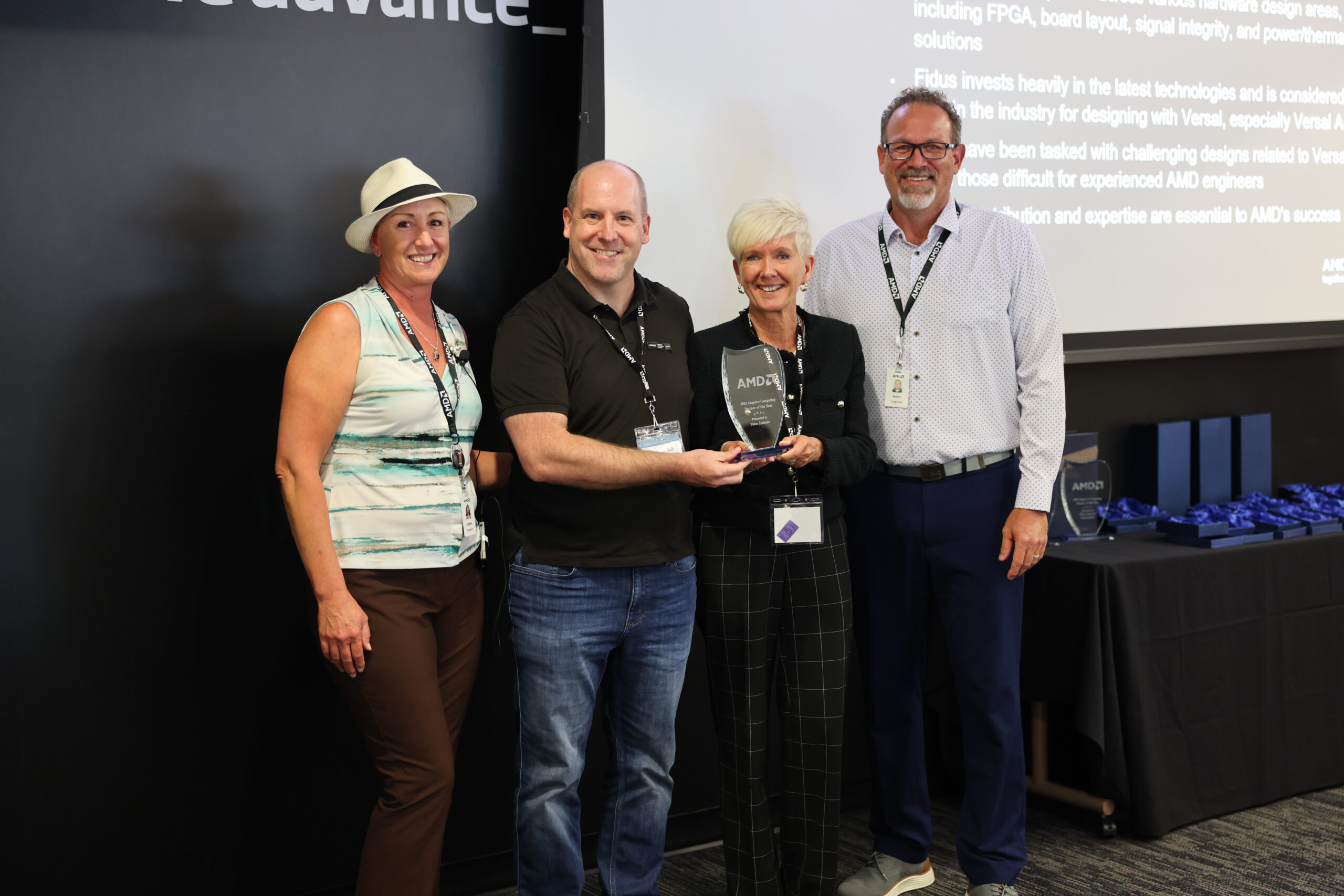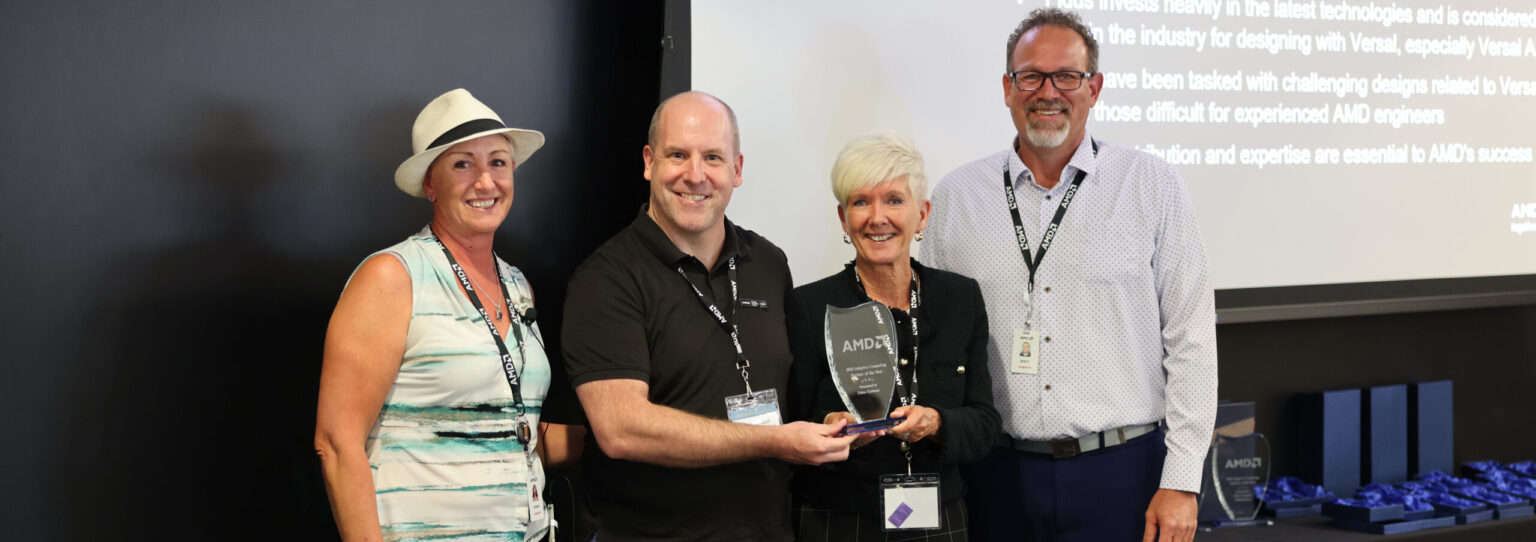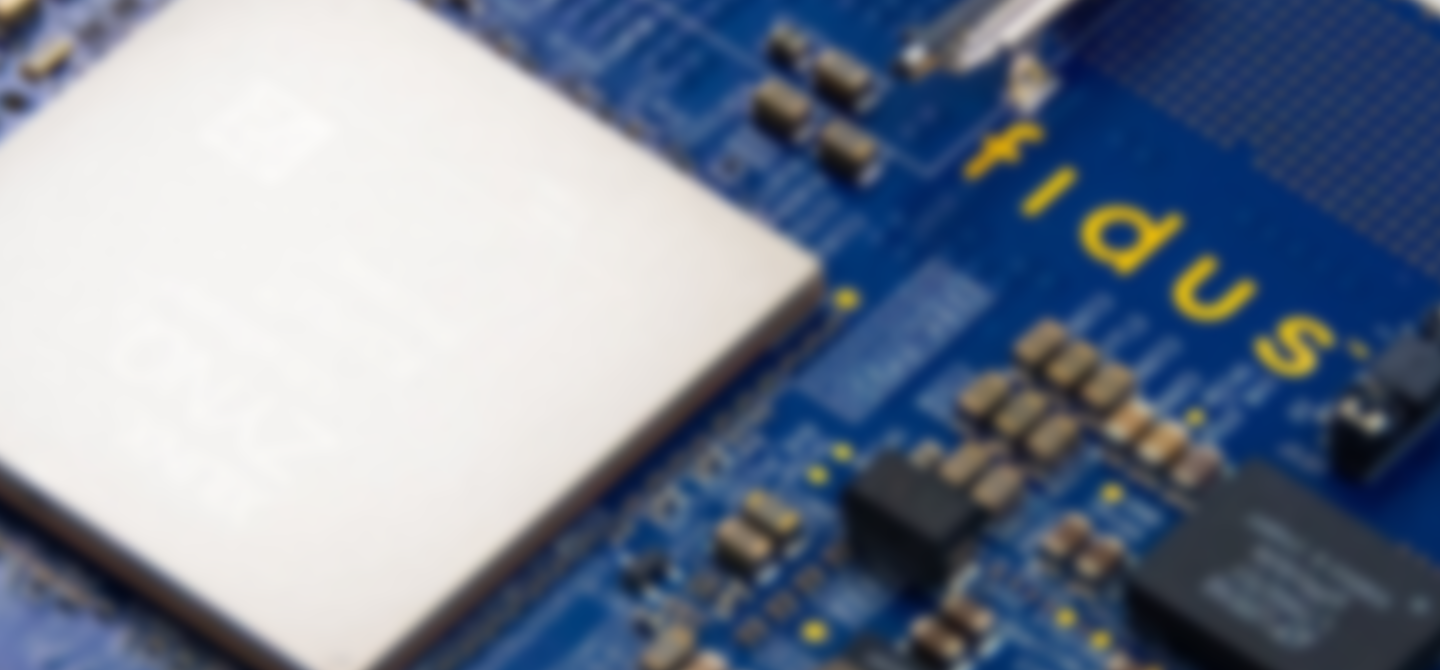Press Release
Recognized for exceptional FPGA, embedded software, and hardware project innovation with AMD products.
Ottawa, ON – Wednesday July 24th, 2024 – Fidus Systems Inc., a leading provider of custom electronic system design and development services, is proud to announce that it has been named an AMD 2023 Adaptive Compute Partner of the Year. This prestigious recognition, announced at the AMD Partner Summit in June, underscores Fidus’s long-standing partnership with AMD, which began in 2002. As a North American Premier Partner since 2012, Fidus competed against 39 other AMD Premier Partners for this coveted recognition.

Above: Fidus employees Scott Turnbull (CTO) and Nancy Hill (Director, Partner Programs) accept award at AMD Partner Summit, June 2024.
Fidus completed close to 150 projects in 2023 that leverage AMD technology while also boasting the largest contingent of AMD-certified engineers amongst the competition.
Scott Turnbull, CTO of Fidus Systems Inc., said, “We are honored to receive this award. Our strong partnership with AMD has allowed us to push the boundaries of FPGA, MPSoC, and Adaptive SoC design; this differentiated knowledge ensures our clients receive the best possible outcomes. Our latest work involving the AMD Versal™ device, including its powerful AI Engine (AIE) technology, has been met with an incredibly positive reception. We’re looking forward to continuing to drive success for our joint customers with cutting-edge AMD technology”.
A testament to their capabilities, Fidus recently successfully optimized a Software Defined Radio design using the AMD Versal™ AI Edge Series VEK280 Evaluation Kit, showcasing their expertise in advanced signal processing and AIE integration, alongside embedded software and hardware design. Key elements implemented in the AIE included RLS Decision Feedback Equalization and MLSE Equalization. The operation was validated using a MATLAB® platform-driven golden vector, hardware-in-the-loop approach.
Fidus is committed to maintaining its leadership in supporting AMD technology through ongoing training and close collaboration with AMD technical experts, often gaining early access to new tools and silicon as well as frequent involvement in the alpha and beta phases of development. By working closely with AMD teams, including close collaboration with ‘the Factory’, Fidus provides critical feedback on industry needs and emerging customer requirements to AMD. This collaboration spans across a variety of AMD products, including AMD Zynq™ and AMD Versal Adaptive SoCs, AMD FPGAs (including Spartan™, Artix™, Kintex™, and Virtex™ families), and AMD Kria™ SOMs.
Rhett Whatcott, Director, Global Training & Enablement at AMD said, “We extend our congratulations to Fidus who has consistently provided expertise across a range of AMD products, including their expertise in designing with Versal devices. Fidus is a key contributor to the success of AMD, and we are proud to recognize them as a 2023 Adaptive Compute Partner of the Year”.
Fidus looks forward to future projects and continued collaboration with AMD. Clients and prospects are encouraged to explore Fidus’s award-winning services and innovative solutions at www.fidus.com/partners/amd.
Media contact:
Alecia O’Brien
Fidus Systems
AMD, the AMD Arrow logo, Artix, Kria, Kintex, Versal, Virtex, Zynq, and combinations thereof are trademarks of Advanced Micro Devices, Inc.





